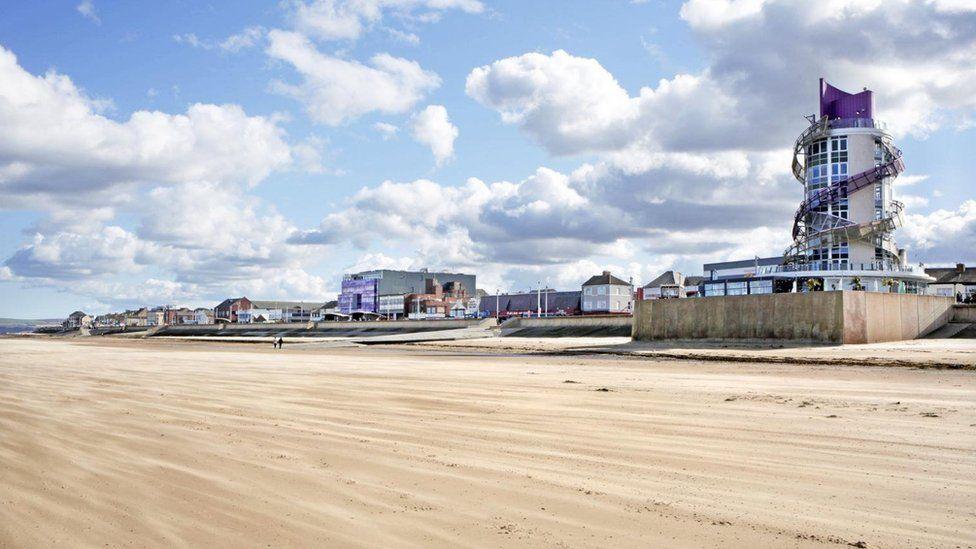Two of four stranded dolphins saved in rescue bid
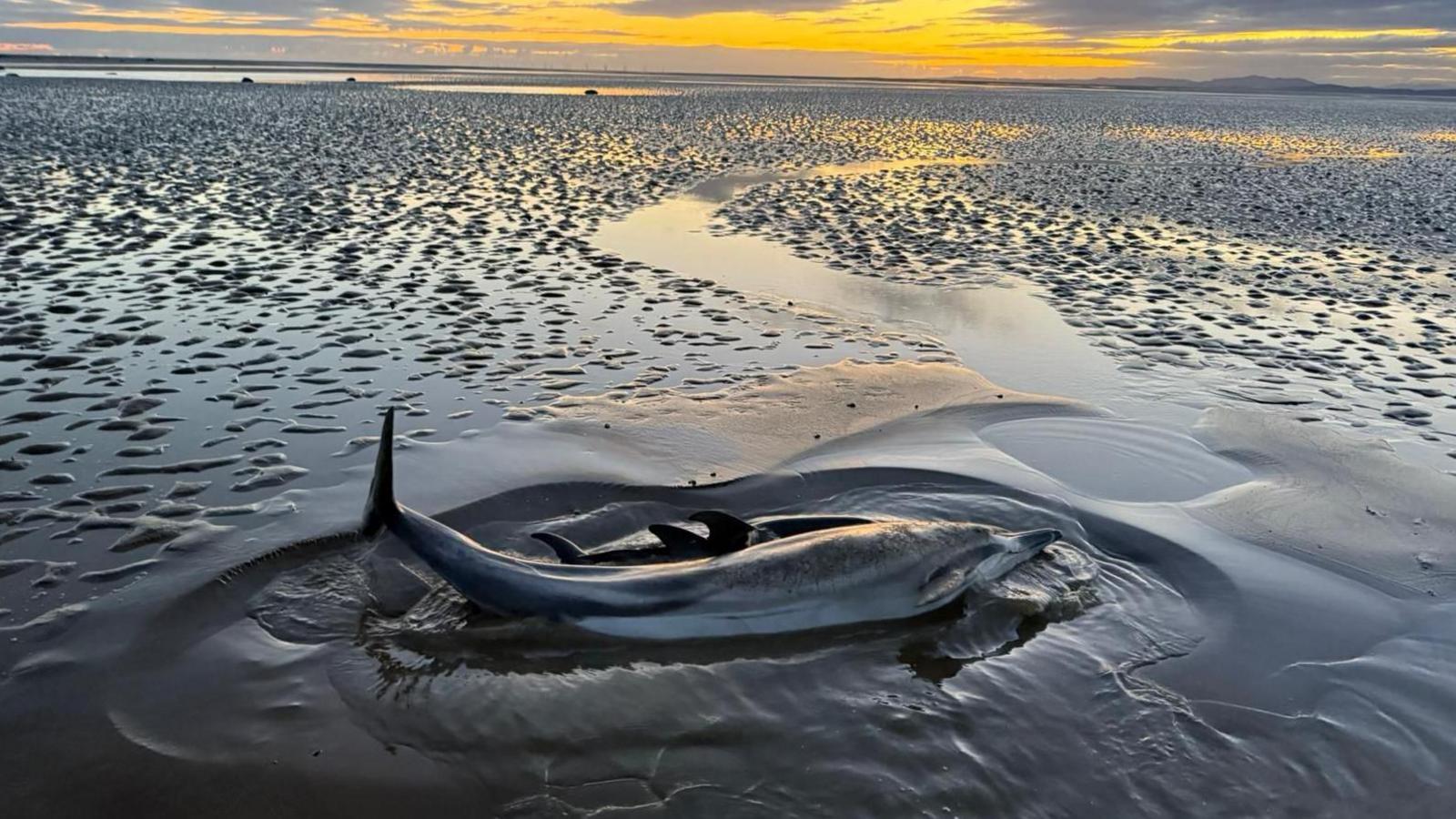
One adult and a calf died next to each other but two others were saved
- Published
Marine rescuers have saved two dolphins after a "very rare" mass stranding of a family of four.
The British Divers Marine Life Rescue (BDMLR) team was called to Beckfoot beach near Silloth in Cumbria on Monday evening.
One adult and a calf had died next to each other, but the other adult and a juvenile were kept alive by volunteers until the tide came in.
Cumbria coordinator for BDMLR Sarah Neil said: "There has been no sign of them since so we really hope they're okay."
"It's very rare to see a stranding where three or more come in round here. I've only seen it twice since I've been doing this work in Cumbria."
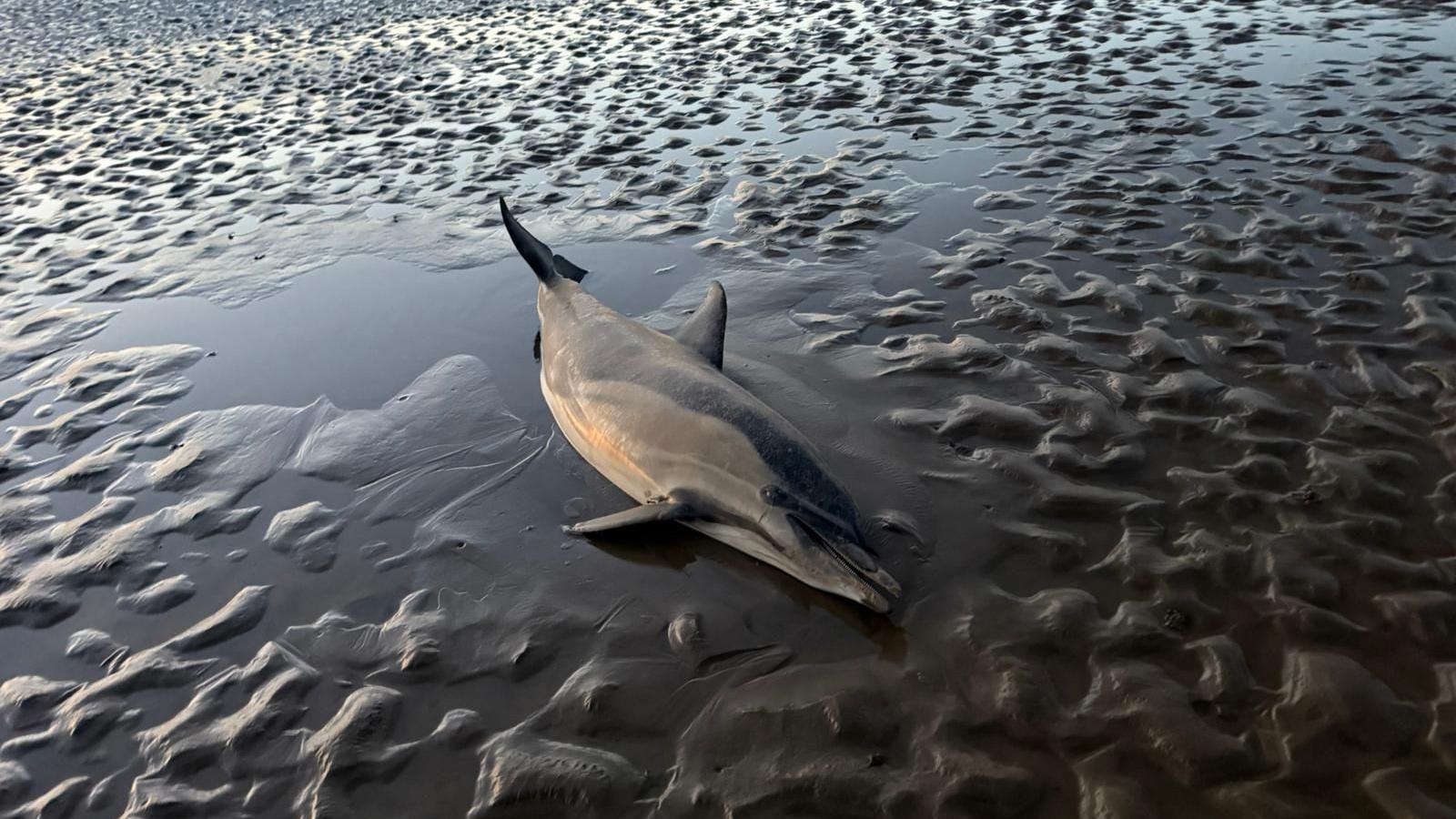
Volunteers turned the surviving dolphins on to their bellies and poured water over them
After a call from a member of the public, volunteers from BDMLR, including a veterinary surgeon, found two of the family in good condition and decided to try and save them.
They were helped by Maryport Coastguard Rescue Team who provided floodlights and shovels and made sure everyone got off the beach safely.
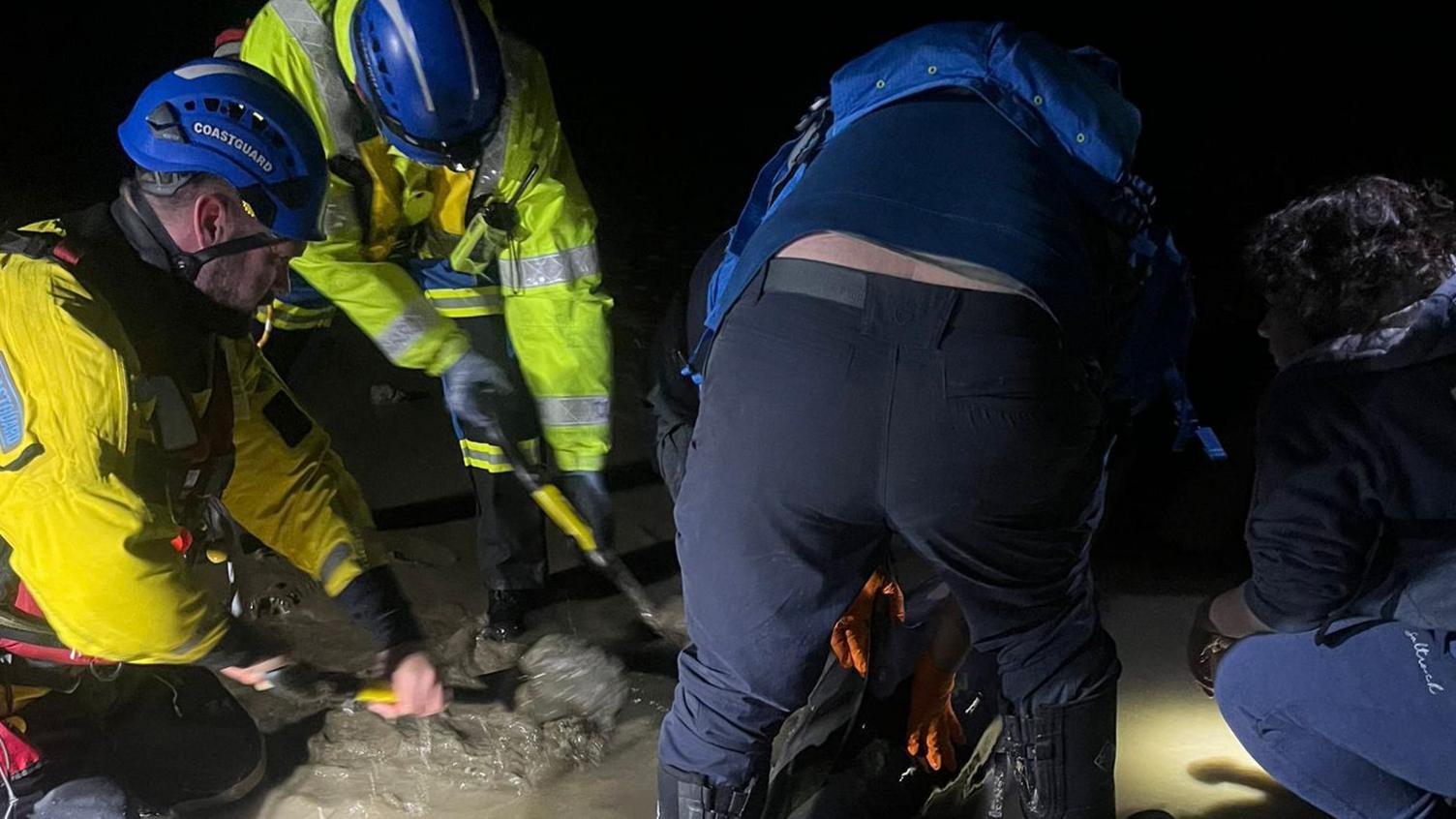
Coastguard volunteers helped by bringing lights when darkness fell before the tide came in
"The tide came in a bit quicker than we expected" Ms Neil said.
"But we watched from a distance as the pair disappeared into the darkness."
At dawn on Tuesday morning the volunteers returned to retrieve the body of the deceased adult dolphin although the calf's body had disappeared.
"It's really important that people call us as soon as they find a marine mammal in distress," Ms Neil said, stressing that it requires expertise to safely assist the animals.
"Sometimes, sadly, they are too sick to be put back in the sea but in this case at least some of the family survived."
Follow BBC Cumbria on X, external, Facebook, external, Nextdoor and Instagram, external.
Get in touch
Do you have a story suggestion for BBC Cumbria?
- Published23 March
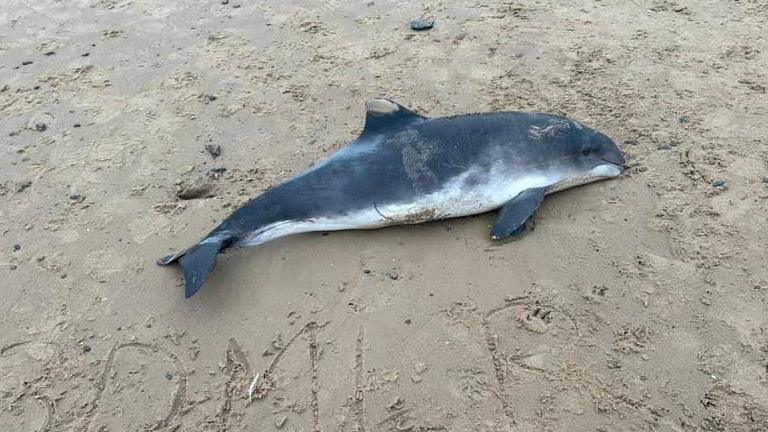
- Published17 May 2024
